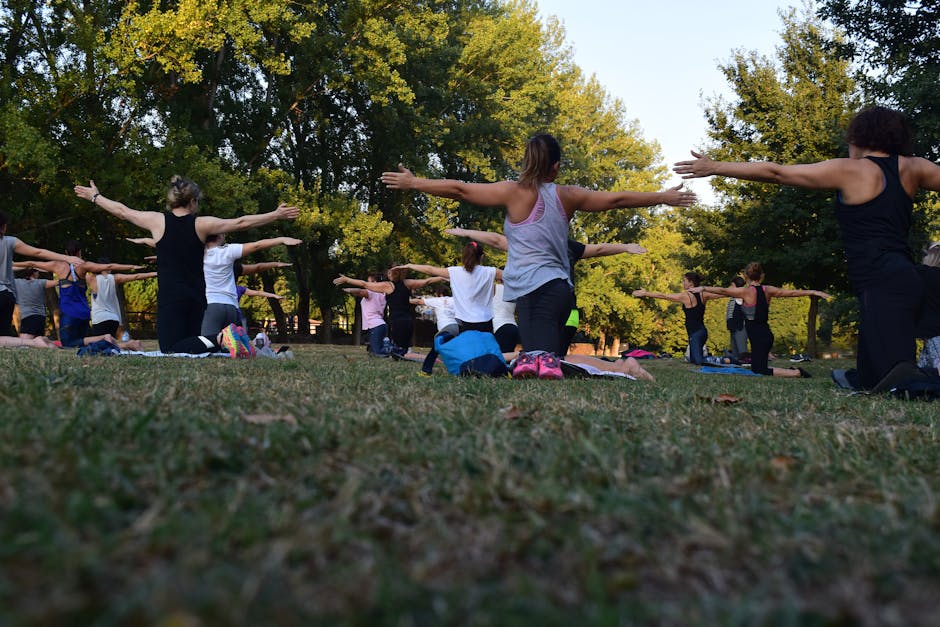Exploring the Benefits of a Healthier Lifestyle
Living a healthier lifestyle comes with a range of benefits that can greatly improve your overall well-being. By incorporating practices like following a ketogenic diet and engaging in regular exercise, you can experience increased energy levels, improved mood, better weight management, and a strengthened immune system. Furthermore, a healthier lifestyle can reduce the risk of chronic diseases such as heart disease, diabetes, and obesity. Prioritizing your health through these lifestyle choices can lead to a more vibrant and fulfilling life.
Understanding Ketogenic Diets
Ketogenic diets are high in fats and low in carbs to put your body into a state of ketosis, where it burns fat for energy instead of carbs. This diet can lead to quick weight loss and improved blood sugar control. Some potential benefits include increased energy levels, better mental focus, and reduced hunger. Remember to consult with a healthcare professional before starting any significant diet changes.
Tips for Implementing Regular Exercise
Regular exercise doesn’t have to be complicated. Start with activities you enjoy, whether it’s walking, biking, or dancing. Set specific goals to keep yourself motivated, like aiming for a certain number of steps per day or committing to a weekly workout class. Remember, consistency is key, so try to schedule your exercise time just like any other appointment. Mixing cardio, strength training, and flexibility exercises can help you stay fit and healthy. If you’re new to exercise, consider consulting a fitness professional to create a safe and effective workout plan tailored to your needs.
Importance of Balanced Nutrition
Balanced nutrition plays a crucial role in maintaining a healthy lifestyle. It provides essential nutrients that the body needs to function properly and stay energized. Including a variety of foods rich in vitamins, minerals, proteins, and carbohydrates in your diet can help you maintain a healthy weight, improve your immune system, and reduce the risk of chronic diseases like heart disease and diabetes. Eating a balanced diet can also improve your mood and overall well-being. Remember, balance is key – so aim to include a mix of fruits, vegetables, whole grains, lean proteins, and healthy fats in your meals to ensure you are getting all the necessary nutrients your body requires.
Mental Health and Well-being
Mental health is just as important as physical health. Regular exercise has been shown to improve mood and reduce feelings of anxiety and depression. Additionally, practicing mindfulness and meditation can help manage stress levels and promote emotional well-being. Remember, taking care of your mental health is a crucial aspect of maintaining a healthier lifestyle.
Achieving Adequate Sleep and Rest
Good quality sleep is crucial for your overall health. Adequate sleep allows your body and mind to rest, repair, and recharge. Here are some tips to help you achieve better sleep and rest:
- Create a bedtime routine to signal to your body that it’s time to wind down.
- Limit exposure to screens at least an hour before bed as the blue light can disrupt your sleep.
- Ensure your sleep environment is comfortable with a good mattress, pillows, and bedding.
- Avoid caffeine and heavy meals close to bedtime to help you fall asleep faster.
- Try relaxation techniques such as deep breathing or meditation to calm your mind before sleep.
By incorporating these habits into your daily routine, you can achieve better sleep quality which will benefit your overall health and well-being.
Hydration: The Forgotten Key to Health
Many people forget the importance of staying hydrated for good health. Drinking an adequate amount of water is crucial for your overall well-being. Here’s why hydration is the forgotten key to health:
- Water makes up about 60% of your body weight and is essential for various bodily functions.
- Dehydration can lead to issues like fatigue, headaches, and poor concentration.
- Aim to drink at least eight 8-ounce glasses of water a day to stay properly hydrated.
- Keeping hydrated can aid digestion, regulate body temperature, and improve skin health.
Remember, staying hydrated is a simple yet powerful way to take care of your body.
Stress Management Strategies
Stress can negatively impact both your physical and mental health. Incorporating effective stress management strategies into your daily routine can help you better cope with life’s challenges. Here are some simple techniques to help you manage stress:
- Exercise regularly: Physical activity can help reduce stress and improve your overall mood.
- Practice deep breathing exercises: Deep breathing can help calm your mind and body during stressful situations.
- Get enough sleep: Lack of sleep can increase stress levels, so aim for 7-9 hours of quality sleep each night.
- Engage in relaxation techniques: Activities like meditation, yoga, or tai chi can help reduce stress and promote relaxation.
By incorporating these strategies into your daily life, you can take proactive steps towards better managing stress and leading a healthier lifestyle.
Building a Support System
Building a support system is crucial when making lifestyle changes. Surrounding yourself with people who encourage and motivate you can make a big difference in reaching your health goals. Here are some ways you can build a support system:
- Share your goals with friends and family so they can support and cheer you on.
- Find a workout buddy or join a fitness group to stay accountable and motivated.
- Consider seeking guidance from a health coach or counselor for extra support and guidance.
- Utilize online communities and forums for tips, advice, and encouragement from like-minded individuals. Building a strong support system can help you stay on track and make your health journey more manageable.
Sustaining Long-Term Health Goals
To sustain long-term health goals, it’s crucial to focus on consistency rather than quick fixes. Here are some tips to help you stay on track:
- Set realistic goals: Start small and gradually increase your targets to avoid burnout.
- Find activities you enjoy: Whether it’s dancing, hiking, or yoga, staying active is easier when you have fun.
- Create a support system: Surround yourself with friends or family who motivate and encourage you.
- Prioritize sleep: Getting enough rest is essential for your overall health and will help you stay energized.
- Eat a balanced diet: Fuel your body with nutritious foods to support your energy levels and overall well-being.

